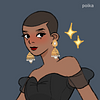Take a photo of a barcode or cover
adventurous
challenging
emotional
inspiring
reflective
sad
medium-paced
Plot or Character Driven:
Character
Strong character development:
Complicated
Loveable characters:
Complicated
Diverse cast of characters:
Complicated
Really good and cool read. I found it so refreshing to be taken through the Trojan War’s events through a different set of eyes, which gives so much context and empathy for varying characters in the book. Bravery of all sorts on display, even when it’s not in the more obvious fighting way. I especially loved th interactions with the gods who caused it all due to overpopulation!
adventurous
reflective
medium-paced
Plot or Character Driven:
A mix
Strong character development:
Yes
Loveable characters:
Complicated
Diverse cast of characters:
No
Flaws of characters a main focus:
Yes
adventurous
challenging
dark
emotional
hopeful
mysterious
sad
tense
medium-paced
Plot or Character Driven:
Plot
fast-paced
4.5 Stars!
Haynes constructs a panoramic view of the stories of all the women that were cast to the sidelines in the epics of Greek mythology. She reminds us with each story that “in war, men lost their lives but the women lost everything else”.
Her narrator of choice, Calliope, the muse of epic poetry, tells Homer of perspectives that prove that the Greek wars were women’s wars, just as much as they were the men’s.
“Just as I promised him: this was never the story of one woman, or two. It was the story of all of them. A war does not ignore half the people whose lives it touches. So why do we?”, she says.
Haynes is feminist in her approach to heroism. In war she argues that fighting isn’t the only form of heroism, but equates survival and perseverance with heroism too.
Calliope relates the story of Oenone, whom Paris abandons with their baby when he goes to retrieve Menelaus’s wife Helen, triggering a 10-year Trojan War. “Is Oenone less of a hero than Menelaus?” asks Calliope. “He loses his wife so he stirs up an army to bring her back to him, costing countless lives and creating countless widows, orphans and slaves. Oenone loses her husband and she raises her son. Which is the more heroic act?”
Similarly, Calliope juxtaposes Homer’s Achilles, who chose a hero’s early death rather than the drawn-out sentence of an obscure old age, with Clytemnestra’s 10-year wait and Penelope’s 20-year wait for their husbands, as also requiring “a hero’s disposition”.
Overall, I loved this! As readers what we get are a series of zigzagging stories, all equally engaging and moving. Thanks Sarah for reading this book and bringing it to my attention - if it weren’t for your GR activity, I’d probably have never heard of it!
If there is any criticism of this book, it is that perhaps the stories are a bit too familiar. There’s very little that is new here that we haven’t already read or watched, or that a quick Wikipedia search of each of these character’s can’t tell us. To this end, as much as I enjoyed and tore through this book, I wish Haynes had taken more creative liberties. If I had to compare, the last such book I read was Circe by Madeline Miller - and that seemed more “original” and “pathbreaking”.
Haynes constructs a panoramic view of the stories of all the women that were cast to the sidelines in the epics of Greek mythology. She reminds us with each story that “in war, men lost their lives but the women lost everything else”.
Her narrator of choice, Calliope, the muse of epic poetry, tells Homer of perspectives that prove that the Greek wars were women’s wars, just as much as they were the men’s.
“Just as I promised him: this was never the story of one woman, or two. It was the story of all of them. A war does not ignore half the people whose lives it touches. So why do we?”, she says.
Haynes is feminist in her approach to heroism. In war she argues that fighting isn’t the only form of heroism, but equates survival and perseverance with heroism too.
Calliope relates the story of Oenone, whom Paris abandons with their baby when he goes to retrieve Menelaus’s wife Helen, triggering a 10-year Trojan War. “Is Oenone less of a hero than Menelaus?” asks Calliope. “He loses his wife so he stirs up an army to bring her back to him, costing countless lives and creating countless widows, orphans and slaves. Oenone loses her husband and she raises her son. Which is the more heroic act?”
Similarly, Calliope juxtaposes Homer’s Achilles, who chose a hero’s early death rather than the drawn-out sentence of an obscure old age, with Clytemnestra’s 10-year wait and Penelope’s 20-year wait for their husbands, as also requiring “a hero’s disposition”.
Overall, I loved this! As readers what we get are a series of zigzagging stories, all equally engaging and moving. Thanks Sarah for reading this book and bringing it to my attention - if it weren’t for your GR activity, I’d probably have never heard of it!
If there is any criticism of this book, it is that perhaps the stories are a bit too familiar. There’s very little that is new here that we haven’t already read or watched, or that a quick Wikipedia search of each of these character’s can’t tell us. To this end, as much as I enjoyed and tore through this book, I wish Haynes had taken more creative liberties. If I had to compare, the last such book I read was Circe by Madeline Miller - and that seemed more “original” and “pathbreaking”.
dark
emotional
reflective
sad
slow-paced
Plot or Character Driven:
Character
Strong character development:
Complicated
Loveable characters:
Complicated
Diverse cast of characters:
N/A
Flaws of characters a main focus:
Complicated
I’m rounding up and giving this book 4 stars, but I’m really somewhere in the 3.5-3.75 area.
My review is partially based on storytelling preference. The idea of telling all the Trojan/Greek women stories from their point of view is so appealing…and yet I’ve preferred focused storytelling such as “Circe” or “Ariadne”—I want the WHOLE story not just snippets where they trade the narration back and forth.
With that, I felt like the writing style had to be somewhat forced. Not every story could be told the same way, so Haynes found different ways to share each story, but then it felt kind of pandering…especially Penelope’s story—which could have been one of the more interesting stories!
All in all, I would recommend for someone who loves Greek tragedy and mythology, but I wouldn’t read it again and didn’t love it. Definitely not a top 5 for this genre.
My review is partially based on storytelling preference. The idea of telling all the Trojan/Greek women stories from their point of view is so appealing…and yet I’ve preferred focused storytelling such as “Circe” or “Ariadne”—I want the WHOLE story not just snippets where they trade the narration back and forth.
With that, I felt like the writing style had to be somewhat forced. Not every story could be told the same way, so Haynes found different ways to share each story, but then it felt kind of pandering…especially Penelope’s story—which could have been one of the more interesting stories!
All in all, I would recommend for someone who loves Greek tragedy and mythology, but I wouldn’t read it again and didn’t love it. Definitely not a top 5 for this genre.
adventurous
challenging
emotional
inspiring
mysterious
reflective
medium-paced
Plot or Character Driven:
A mix
Strong character development:
Complicated
Loveable characters:
Complicated
Diverse cast of characters:
No
Flaws of characters a main focus:
Yes
adventurous
emotional
reflective
fast-paced
Plot or Character Driven:
Plot
Strong character development:
No
Loveable characters:
Complicated
Diverse cast of characters:
Yes
Flaws of characters a main focus:
Complicated



